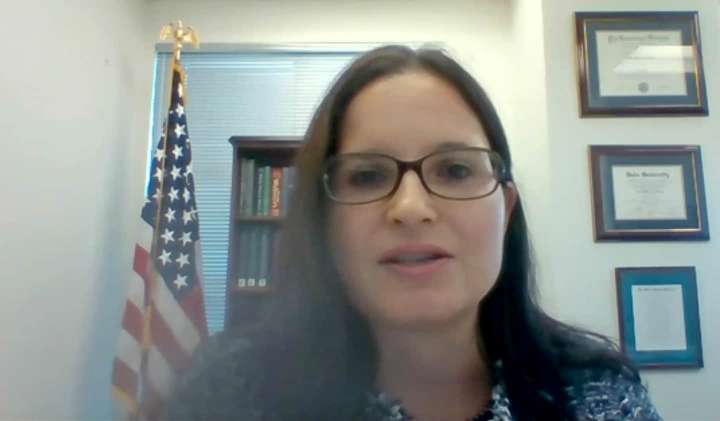As U.S. District Judge Aileen M. Cannon ruled twice in the Mar-a-Lago documents case for the former president who nominated her to the bench, many legal experts — including conservatives and executive-power advocates — have strained to understand how she could have reached such conclusions about Donald Trump’s claims.
A thorough rebuke of Judge Aileen Cannon’s pro-Trump order

On Wednesday night, two fellow Trump nominees joined with another judge to provide the rebuke of Cannon’s jurisprudence that those experts suggested might be coming.
A three-judge panel of the U.S. Court of Appeals for the 11th Circuit was rather unsparing in unanimously granting the Justice Department a reprieve from Cannon’s order barring them from reviewing documents with classified markings seized from Mar-a-Lago. The stay is temporary, but the reasoning is firm.
They repeatedly rejected not just the Trump legal team’s lack of arguments, but also Cannon’s acceptance of them. Indeed, they suggested it was inexplicable that Cannon ruled for Trump even by her own logic.
The ruling really kicks into gear when the judges address what a 1977 Supreme Court case considered the “foremost consideration” in deciding whether a court such as Cannon’s should exercise jurisdiction in such a case: whether the government “displayed a callous disregard for … constitutional rights” in its seizure.
The judges say Cannon conceded that it hadn’t displayed such disregard, but then disregarded that consideration all the same — and say she thus “abused” her “discretion.”
“Here, the district court concluded that [Trump] did not show that the United States acted in callous disregard of his constitutional rights. No party contests the district court’s finding in this regard,” the judges write. “The absence of this ‘indispensab[le]’ factor … is reason enough to conclude that the district court abused its discretion in exercising equitable jurisdiction here.”
The judges continue, rather dryly: “But for the sake of completeness, we consider the remaining factors.”
Cannon might wish they hadn’t.
On the second test — whether Trump has an interest in the documents marked classified at issue — the judges note that Cannon ruled Trump had an interest in some of the documents seized.
“But none of those concerns apply to the roughly one-hundred classified documents at issue here,” the judges write, before twisting the knife a little more: “And the district court made no mention in its analysis of this factor as to why or how Plaintiff might have an individual interest in or need for the classified documents.”
Indeed, Cannon’s apparent lack of curiosity — best exemplified by her acceptance of the Trump legal team’s claims that the documents might have been declassified without actually stating as much — was a feature of the remainder of the opinion. The judges repeatedly note Trump’s lawyers weren’t even compelled to furnish arguments on some of the crucial matters at hand. And they say that even if they had been, it might not have mattered.
“Plaintiff has not even attempted to show that he has a need to know the information contained in the classified documents,” they write. “Nor has he established that the current administration has waived that requirement for these documents. And even if he had, that, in and of itself, would not explain why Plaintiff has an individual interest in the classified documents.”
They go on to not only rebuke Cannon’s ruling, but the very idea that Trump’s public, out-of-court claims (which his lawyers have conspicuously declined to echo) that he declassified the documents even matters — a crucial point that shouldn’t be lost in all of this.
“Plaintiff suggests that he may have declassified these documents when he was President. But the record contains no evidence that any of these records were declassified,” the judges write. “And before the special master, Plaintiff resisted providing any evidence that he had declassified any of these documents.”
They add: “In any event, at least for these purposes, the declassification argument is a red herring because declassifying an official document would not change its content or render it personal. So even if we assumed that Plaintiff did declassify some or all of the documents, that would not explain why he has a personal interest in them.”
It’s an opinion that brings home virtually all of the criticism of Cannon’s ruling and even of the significance of the underlying dispute over the classification status of the documents. It’s saying both that she got it wrong — and that it’s beside the point.
But Cannon is hardly the only one to suffer a rebuke in the opinion. Trump has publicly claimed he declassified all of the documents, but his lawyers watered that down to suggest merely that he might have, and Cannon accepted that evidence-free claim as rendering the documents’ status as in dispute. Yet judges signaled that they have no time for any of it. Rather, they repeatedly refer to the documents as classified, without qualifying that description in any way.
They refer to “the roughly one-hundred classified documents at issue here” and repeatedly to “the classified documents.” And in their concluding sentence, they twice flat-out call them classified: “The district court order is STAYED to the extent it enjoins the government’s use of the classified documents and requires the government to submit the classified documents to the special master for review.”
It’s the second time in two days that judges have undercut the Trump legal strategy that Cannon accepted, after the special master, Raymond J. Dearie, pressed Trump’s legal team much more than she had on its unsubstantiated declassification claims.
And for the second time in two days, it comes from judges Trump himself recommended.






